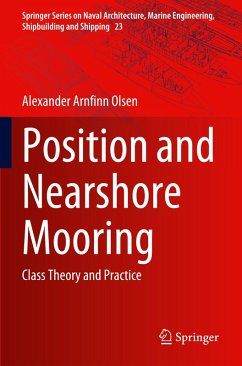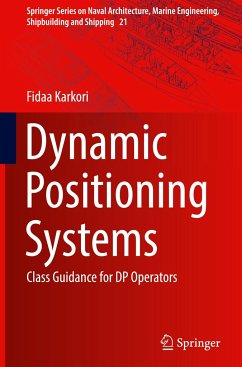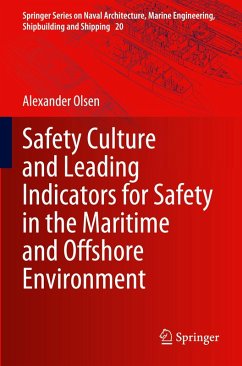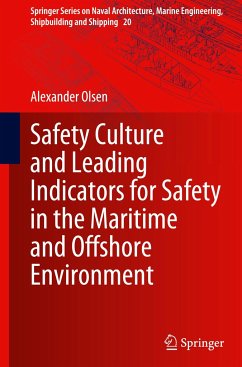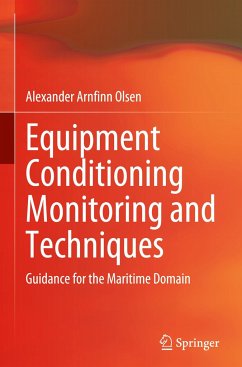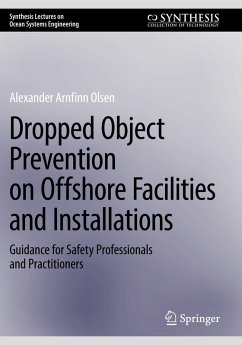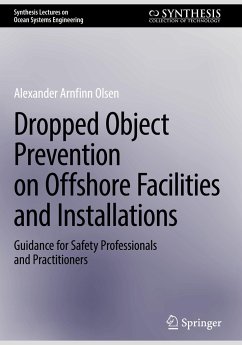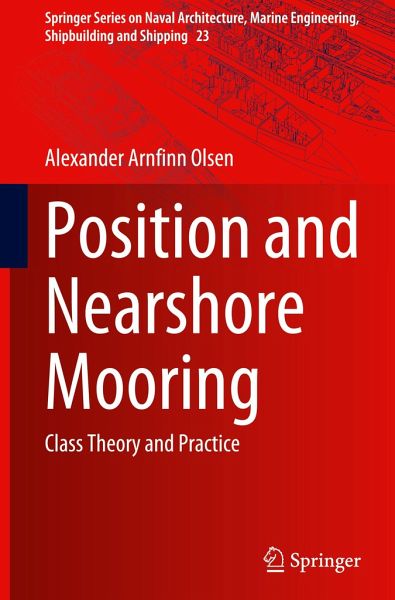
Position and Nearshore Mooring
Class Theory and Practice
Versandkostenfrei!
Versandfertig in 6-10 Tagen
106,99 €
inkl. MwSt.
Weitere Ausgaben:

PAYBACK Punkte
53 °P sammeln!
This book provides a summary of the Class Rules and Guides for mooring systems so that they are easier to navigate and therefore implement.Mooring systems have been evolving in design, analysis, operating management, and other areas to meet the challenges of safety and efficiency. To ensure these challenges are met, Class Rules and Guides are developed and updated to keep pace with the maritime industry. This has resulted in a complex library of Class Rules and Guides. Many requirements are repeated throughout these Class Rules and Guides making use and maintenance of Class Rules/Guides increa...
This book provides a summary of the Class Rules and Guides for mooring systems so that they are easier to navigate and therefore implement.
Mooring systems have been evolving in design, analysis, operating management, and other areas to meet the challenges of safety and efficiency. To ensure these challenges are met, Class Rules and Guides are developed and updated to keep pace with the maritime industry. This has resulted in a complex library of Class Rules and Guides. Many requirements are repeated throughout these Class Rules and Guides making use and maintenance of Class Rules/Guides increasingly cumbersome and bureaucratic.
In addition to the consolidation of the current requirements, this book also includes guidance in the following areas based on the latest industry knowledge and experiences:
Vortex-Induced Motion (VIM) effect.Bending-tension fatigue of mooring chains.Fiber rope mooring criteria.Mooring systems in squalls.Dynamically installed anchors.Anchor holding capacity.Mooring analysis methodology.Thruster-assisted mooring.
Mooring systems have been evolving in design, analysis, operating management, and other areas to meet the challenges of safety and efficiency. To ensure these challenges are met, Class Rules and Guides are developed and updated to keep pace with the maritime industry. This has resulted in a complex library of Class Rules and Guides. Many requirements are repeated throughout these Class Rules and Guides making use and maintenance of Class Rules/Guides increasingly cumbersome and bureaucratic.
In addition to the consolidation of the current requirements, this book also includes guidance in the following areas based on the latest industry knowledge and experiences:
Vortex-Induced Motion (VIM) effect.Bending-tension fatigue of mooring chains.Fiber rope mooring criteria.Mooring systems in squalls.Dynamically installed anchors.Anchor holding capacity.Mooring analysis methodology.Thruster-assisted mooring.





